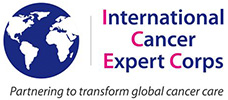Is Africa a ‘Graveyard’ for Linear Accelerators?
Africa should not be a “graveyard” for Linear Accelerators. There is an urgent need to develop a highly skilled workforce of specifically trained engineers, technicians and physicists necessary to ensure linear accelerators can be safely operated, maintained and serviced in low- and middle-income countries in Africa where the incidence of cancer is disproportionately high. Proper maintenance and repair plans, when implemented, reflect the continent’s capacity to maintain, install, commission and repair the highly technical medical equipment.







 One of ICEC’s Early Career Leaders, Surbhi Grover, was recently featured in ASTROnews! Currently, Dr. Grover works in Botswana as head of department and is the only radiation oncologist from a U.S. institution working full-time in public health overseas.
One of ICEC’s Early Career Leaders, Surbhi Grover, was recently featured in ASTROnews! Currently, Dr. Grover works in Botswana as head of department and is the only radiation oncologist from a U.S. institution working full-time in public health overseas. Astronews recently highlighted ICEC and other organizations that have launched initiatives to respond to the global need for training and resources in radiation oncology! Read more about these initiatives and the organizations working to address issues in global health.
Astronews recently highlighted ICEC and other organizations that have launched initiatives to respond to the global need for training and resources in radiation oncology! Read more about these initiatives and the organizations working to address issues in global health.